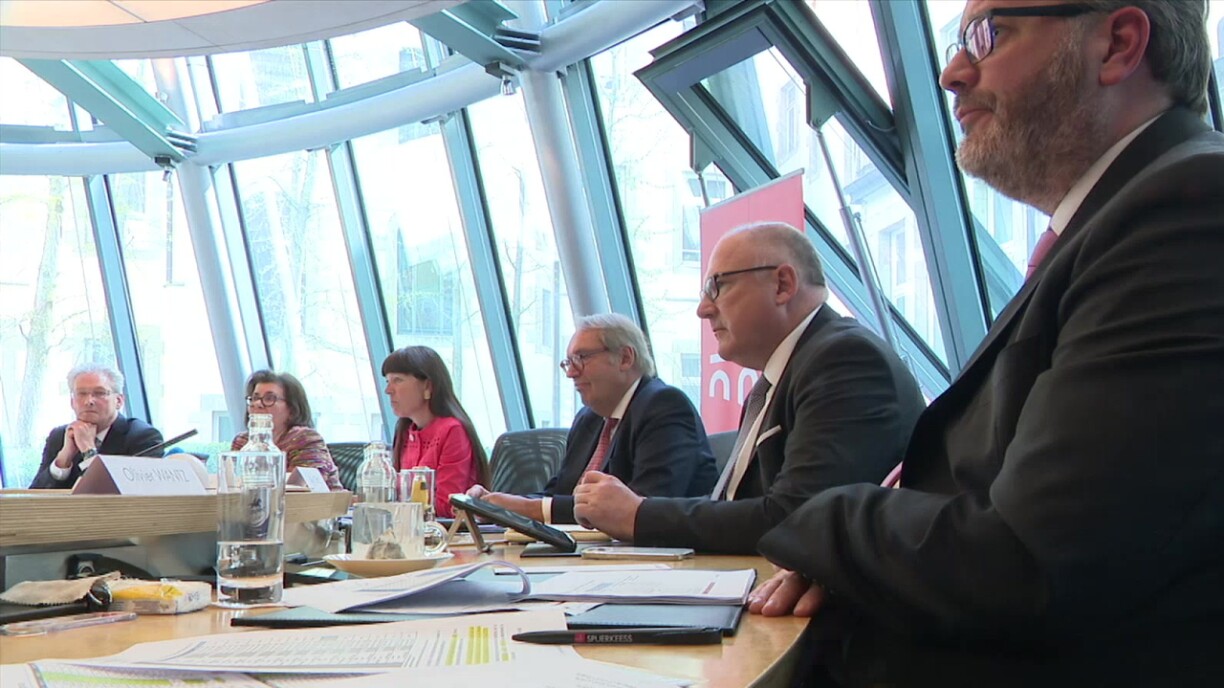
The controversy surrounding the Caritas fraud scandal continues. Last Friday, Spuerkeess management was called to the Chamber’s finance committee to explain the €5 million sanction imposed by the Supervisory Commission of the Financial Sector (CSSF).
The CSSF concluded that the bank’s system to combat money laundering, terrorist financing, and fraud had not complied with legal requirements. The finance committee continued its hearings this week with Finance Minister Gilles Roth and PM Luc Frieden.
For several MPs, the Friday hearing felt like a reckoning for Spuerkeess. MP André Bauler from the Democratic Party (DP) noted that the bank’s leadership had effectively admitted shortcomings, stressing that they were still lagging behind in implementing proper procedures and acknowledging that mistakes had been made.
This is particularly significant given that Spuerkeess had already received a formal injunction from the CSSF back in 2020. Until now, the bank had maintained there was no direct link between its weak internal controls and the multimillion-euro Caritas fraud.
MP Sven Clement from the Pirate Party (Piratepartei) rejected that argument, pointing out that the CSSF’s sanction explicitly cited failings linked to the Caritas case, which had been directly scrutinised by the regulator.
MP Taina Bofferding from the Luxembourg Socialist Workers’ Party (LSAP) underlined that Spuerkeess cannot shirk responsibility, arguing that while the bank claims its systems were “abused” for fraudulent purposes, the CSSF’s findings make clear that it was precisely because of those deficient systems that such a large-scale fraud could take place.
For MP Sam Tanson of the Greens (déi gréng), the issue goes beyond the bank itself: she questioned whether the government had handled the matter appropriately, given the now even more pressing question of whether the state-owned bank bears joint responsibility for what happened.
MP Marc Baum of the Left (déi Lénk) was more blunt, insisting that the involvement of a public bank in the collapse of one of Luxembourg’s key social pillars, Caritas, was unacceptable. He accused the government of looking the other way until the scandal became undeniable, and criticised Frieden for downplaying the fact that he was not informed earlier.
Attention also turned again to Roth, who knew as early as February that a sanction was likely but did not inform the PM.
MP Diane Adehm of the Christian Social People’s Party (CSV) defended Roth, saying he had followed the law to the letter by respecting established procedures.
She and MP Tom Weidig from the Alternative Democratic Reform Party (ADR) both condemned the fact that five years after the first CSSF injunction, Spuerkeess still had not implemented all of the regulator’s recommendations. However, they also cautioned that the Caritas fraud might still have occurred even if the bank’s system had been fully up to standard.